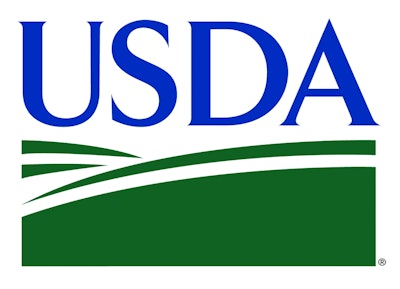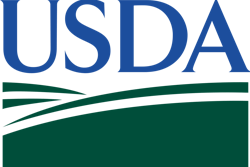
USDA announced a series of prevention-based policy measures that will better protect consumers from foodborne illness in meat and poultry products.
These measures will significantly improve the ability of both plants and USDA to trace contaminated food materials in the supply chain, to act against contaminated products sooner, and to establish the effectiveness of food safety systems.
"The additional safeguards we are announcing today will improve our ability to prevent foodborne illness by strengthening our food safety infrastructure," said USDA under secretary for food safety Dr. Elisabeth Hagen. "Together, these measures will provide us with more tools to protect our food supply, resulting in stronger public health protections for consumers."
The policy measures include the following:
USDA's Food Safety and Inspection Service (FSIS) intends to implement new traceback measures in order to control pathogens earlier and prevent them from triggering foodborne illnesses and outbreaks.
FSIS is proposing to launch traceback investigations earlier and identify additional potentially contaminated product when the Agency finds E. coli O157:H7 through its routine sampling program. When FSIS receives an indication of contamination through presumptive positive test results for E. coli, the Agency will move quickly to identify the supplier of the product and any processors who received contaminated product from the supplier, once confirmation is received. This proposed change in policy gives FSIS the opportunity to better prevent contaminated product from reaching consumers.
Learn more about the traceback proposed change in policy.
FSIS is implementing three provisions included in the Food, Conservation and Energy Act of 2008 (the 2008 Farm Bill). The new regulations, published as a Final Rule and directed by Congress, require establishments to prepare and maintain recall procedures, to notify FSIS within 24 hours that a meat or poultry product that could harm consumers has been shipped into commerce, and to document each reassessment of their hazard control and critical control point (HACCP) system food safety plans.
Learn more about the Farm Bill provisions.
FSIS is announcing the availability of guidance to plants on the steps that are necessary to establish that their HACCP food safety systems will work as designed to control the food safety hazards that they confront. This process, called "validation," enables companies to ensure that their food safety systems are effective for preventing foodborne illness. This notice announces that the draft guidance document is available for comment.
Learn more about HACCP validation draft guidance.
In the past two years, FSIS has announced several measures to safeguard the food supply, prevent foodborne illness, and improve consumers' knowledge about the food they eat. These initiatives support the three core principles developed by the President's Food Safety Working Group: prioritizing prevention; strengthening surveillance and enforcement; and improving response and recovery. Some of these actions include:
- Performance standards for poultry establishments for continued reductions in the occurrence of pathogens. After two years of enforcing the new standards, FSIS estimates that approximately 5,000 illnesses will be prevented each year under the new Campylobacter standards, and approximately 20,000 illnesses will be prevented under the revised Salmonella standards each year.
- Zero tolerance policy for six Shiga toxin-producing E. coli (STEC) serogroups. Raw ground beef, its components, and tenderized steaks found to contain E. coli O26, O103, O45, O111, O121 or O145 will be prohibited from sale to consumers. USDA will launch a testing program to detect these dangerous pathogens and prevent them from reaching consumers.
- Test and hold policy that will significantly reduce consumer exposure to unsafe meat products, should the policy become final, because products cannot be released into commerce until Agency test results for dangerous contaminants are known.
- Labeling requirements that provide better information to consumers about their food by requiring nutrition information for single-ingredient raw meat and poultry products and ground or chopped products.
Public Health Information System, a modernized, comprehensive database about public health trends and food safety violations at the nearly 6,100 plants FSIS regulates.

















